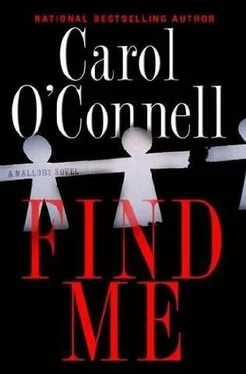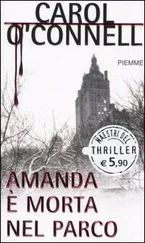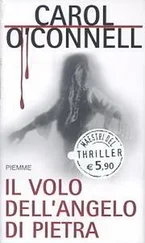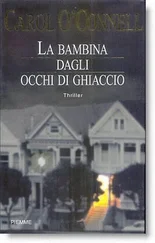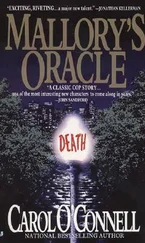That afternoon, Paul Magritte had waited out the uncomfortable silence, looking about the room and noting the lighter wallpaper that had marked the old outlines of other picture frames, their places usurped by portraits of the Madonna and a court of saints. And, as if a houseful of religious paraphernalia were not imposition enough, poor Methodist Mr. Egram now had a stranger settled into his favorite chair, for his wife had insisted that their visitor must take the most comfortable seat in the house, the one facing the television set.
Their older child had crept up to the front window. Face pressed hard against the glass, the small features were smeared and made monstrous. One eye bulged and one was lost within deep folds of squeezed flesh.
This little horror show had hardly ruffled Paul Magritte that day. He had seen it as a ploy to gain attention, the normal behavior of a child with emotionally distant parents. Despite a missing sibling, the youngster was well adjusted; a psychological evaluation had been done while Social Services still had custody of this ten-year-old-and while the police had been investigating the parents, suspecting them in the disappearance of their little girl.
That day, only the mother’s behavior had shocked Dr. Magritte. He had wondered how she could have been averse to his wonderful plan to take her surviving child away from her. Fool that he was in those days, he had assumed that she had been unable to fully grasp it all. “You understand,” he had said to her then, “this won’t put a financial burden on your family. The surgeon, the hospital and staff-they’re donating their services.”
For the second time, she had said no to him. “It wouldn’t be right.” And then, Sarah Egram had elaborated. “You can’t make everything all normal that way. Nobody will ever see it coming.”
It.
This was how she had referred to her disfigured child.
Memory dissipated like mist, and Paul Magritte’s eyes were jolted wide open. The altar flames did not waver now, but he heard a noise behind him, and what was it? A baby rattle? No, and it was not a rosary, either. The rattle of little bones? Lessons of Sarah Egram: He would not see it coming. The old man had never known such fear, and he could not move; he could not turn around even to save his life. But he could close his eyes-not to pray, but to carry him away from here, back in time to the Egram house, eyes shut tight.
And now he could see that small misshapen face pressed to the pane of the front window, one eye focused on the mother-center of a child’s universe. But Mrs. Egram had been looking elsewhere, and some interior vision had made her tremble. That day Paul Magritte had believed that the poor woman was imagining the fate of her missing five-year-old. Or perhaps the prospect of separation from the older child had unhinged her and made her nonsensical.
“We’d be gone no more than four weeks.” That very day, Paul Magritte had planned to personally escort the youngster to Chicago-if the mother would only listen to reason. “This would be the first in a number of operations. Some procedures are best done during the formative years. Later, when the bones are fully matured-”
“You don’t understand,” the woman had said to him in the slow, mother tones reserved for speaking to young children. “This is not right-not God’s will.”
The truck driver, roused from lethargy, had nearly smiled. “You say it’ll take four weeks? That’s fine with me.” The man had reached out and snatched the consent forms. Sarah Egram had slumped forward, her eyes downcast, while her husband searched his pockets for something to write with. A pen was found. Defeated, the woman had risen from the couch and left the room.
Pen to paper, the trucker had asked, “One signature? That’s enough?”
“It’ll do.” Magritte’s eyes had been focused on Sarah’s retreating back. “Your wife needs help.”
“I know what she needs.” And these had been the truck driver’s last words to him.
A metallic sound called Paul Magritte back to the real and solid environs of a Texas church, where he worked his own rosary and incantations, whispering the magic words, not asking forgiveness or relief from pain; he only wanted to stave off his growing fear. He was not alone in this place, and escape was not possible anymore, not by any door in the present or in his past. His skin prickled. He held his breath.
Which one would it be?
“Who are you praying for, old man?”
“For you.” This was a true thing, and he said it with awe. His movements were slow and full of pain as he rose to his feet and turned to face Detective Mallory with a smile of thank God. It was the first time any prayer of his had been answered, and his new name for this young woman was Deliverance. With another sort of smile, a foolish one, he looked down at the rosary in his hands, saying, “Candles, hocus-pocus and magic beads. This must fit your idea of the average witch doctor.”
“Oh, but you’re more than that, Dr. Magritte.” She sat in the first pew, arms folded against him and daring him to tell a lie. “Did they throw you out of the priesthood? Or was it your idea to leave?”
Mallory’s leather knapsack sat on the floor at her feet. His own sack of light nylon rested on her lap. The zipper was undone, and that must have been the noise that had frightened him so.
“You look worried, Magritte. You shouldn’t be. I don’t have a warrant.” Mallory reached inside his sack and pulled out an ancient revolver. “So I can’t seize this. FBI agents are searching all the cars.” She held up the gun. “I don’t think this is what they’re looking for… so that’s not why you’re hiding out in this church.”
“That was my grandfather’s revolver,” said Paul Magritte. “My inheritance if you like. It’s all he left behind. That’s why I kept it.” Oh, fool, he was making a liar’s worst mistake-overanxious to explain in detail, and now he found that he could not stop himself. “I’m afraid I never took proper care of the gun. Rusty, isn’t it? I very much doubt that it would work. Just as well. It’s not loaded. I wouldn’t even know how to load it.”
Mallory hefted the weight of the weapon, and then examined it more closely. “A twenty-two.” This was said with mild derision. And now she held up a small blue pouch that was also his property. “And this? Another souvenir? It wasn’t very smart to keep it.” She emptied the contents of the pouch into her palm, then closed her fist on the tiny bones of a child’s hand.
Struck dumb, he could only stare at her.
“I’ve got a few possibilities here,” said Mallory. “Did you murder all those little girls?” The detective dangled the little blue pouch. “Or did somebody plant this for the feds to find?”
She had actually provided him with a possible way out. Or was it the way into another trap? In the stillness of the church, he could hear the little bones rattle as she slipped them back into the blue velvet pouch.
“Oh, wait,” said Mallory. “I’ve got one more theory. Did this little bag of bones come in the mail with a note? Something like-oh, how does it go?” She produced a slip of paper yellowed with age-another theft from his knapsack, and she read the words, “ ‘Father, forgive me for I have sinned.’ ” The detective rose to her feet, holding his gun in her right hand, the blue pouch in her left, and she seemed to be weighing them, one against the other, but her eyes were fixed upon him. He imagined another sort of creature might look at its next meal this way, while the prey still breathed and writhed under one clawed paw.
“You could help me find him,” she said. “But that’s not going to happen, is it?”
Читать дальше
